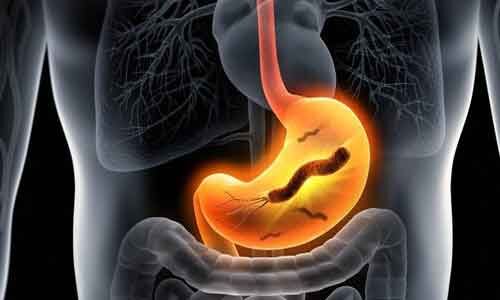- Home
- Medical news & Guidelines
- Anesthesiology
- Cardiology and CTVS
- Critical Care
- Dentistry
- Dermatology
- Diabetes and Endocrinology
- ENT
- Gastroenterology
- Medicine
- Nephrology
- Neurology
- Obstretics-Gynaecology
- Oncology
- Ophthalmology
- Orthopaedics
- Pediatrics-Neonatology
- Psychiatry
- Pulmonology
- Radiology
- Surgery
- Urology
- Laboratory Medicine
- Diet
- Nursing
- Paramedical
- Physiotherapy
- Health news
- Fact Check
- Bone Health Fact Check
- Brain Health Fact Check
- Cancer Related Fact Check
- Child Care Fact Check
- Dental and oral health fact check
- Diabetes and metabolic health fact check
- Diet and Nutrition Fact Check
- Eye and ENT Care Fact Check
- Fitness fact check
- Gut health fact check
- Heart health fact check
- Kidney health fact check
- Medical education fact check
- Men's health fact check
- Respiratory fact check
- Skin and hair care fact check
- Vaccine and Immunization fact check
- Women's health fact check
- AYUSH
- State News
- Andaman and Nicobar Islands
- Andhra Pradesh
- Arunachal Pradesh
- Assam
- Bihar
- Chandigarh
- Chattisgarh
- Dadra and Nagar Haveli
- Daman and Diu
- Delhi
- Goa
- Gujarat
- Haryana
- Himachal Pradesh
- Jammu & Kashmir
- Jharkhand
- Karnataka
- Kerala
- Ladakh
- Lakshadweep
- Madhya Pradesh
- Maharashtra
- Manipur
- Meghalaya
- Mizoram
- Nagaland
- Odisha
- Puducherry
- Punjab
- Rajasthan
- Sikkim
- Tamil Nadu
- Telangana
- Tripura
- Uttar Pradesh
- Uttrakhand
- West Bengal
- Medical Education
- Industry
Quadruple therapy with doxycycline safe and effective for H. pylori eradication: Study

China: 7-day and 10-day quadruple therapy with doxycycline could be an optional first-line therapy for Helicobacter pylori infection, a recent study has revealed.
The study, published in the journal Helicobacter, further found the safety of regimens containing semisynthetic tetracyclines to be relatively satisfactory. The researchers, however, did not recommend triple regimen.
There is a great concern on the trends of increasing antibiotic resistance and decreasing Helicobacter pylori eradication rate. Considering this, there arises a need for new and effective therapies for H. pylori infection. To assess the efficacy and safety of semisynthetic tetracycline regimens in H. pylori treatment, Yong Xie, Department of Gastroenterology, the First Affiliated Hospital of Nanchang University, Nanchang, China, and colleagues conducted a systematic review and meta-analysis to assess the efficacy and safety of semisynthetic tetracycline regimens in H. pylori treatment.
For this purpose, the researchers searched the online databases. The outcome indicators were the eradication rate, risk ratio (RR, ie, the risk of the semisynthetic tetracycline regimen relative to the control). Controls were patients undergoing any other treatment without semisynthetic tetracycline.
Twenty-three studies with 5240 participants were included.
Key findings of the study include:
- The eradication rates of triple regimens with semisynthetic tetracyclines in most studies were less than 70% in both the intention-to-treat (ITT) and the per-protocol (PP) analyses.
- The pooled eradication rates of quadruple therapies with doxycycline and controls were 95% and 84% in the PP analyses, respectively.
- The pooled RR associated with efficacy in the quadruple therapy with doxycycline group compared with the control group was 1.12 in the PP analysis.
- The pooled RR of side effects in the quadruple therapy with doxycycline group compared with the control group was 1.01.
Based on the findings that authors concluded that seven-day and ten-day quadruple therapy with doxycycline might be an optional first-line therapy.
"The safety of regimens containing semisynthetic tetracyclines was relatively satisfactory. However, the triple regimen is not recommended," they wrote.
Reference:
The study titled, "Doxycycline and minocycline in Helicobacter pylori treatment: A systematic review and meta-analysis," is published in the journal Helicobacter.
DOI: https://onlinelibrary.wiley.com/doi/10.1111/hel.12839
Dr Kamal Kant Kohli-MBBS, DTCD- a chest specialist with more than 30 years of practice and a flair for writing clinical articles, Dr Kamal Kant Kohli joined Medical Dialogues as a Chief Editor of Medical News. Besides writing articles, as an editor, he proofreads and verifies all the medical content published on Medical Dialogues including those coming from journals, studies,medical conferences,guidelines etc. Email: drkohli@medicaldialogues.in. Contact no. 011-43720751


